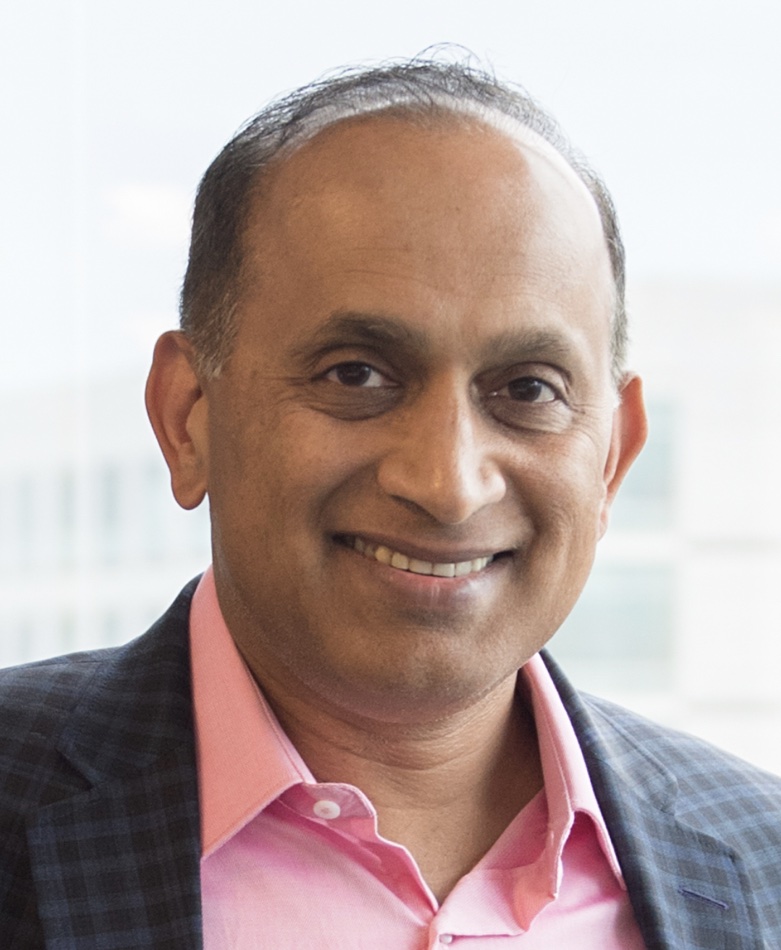The first part of our interview with Mohit Aron and Sanjay Poonen, Cohesity’s new CEO, focussed on Aron. Now we turn to Poonen.

Poonen, in his third official day at Cohesity, talked about the new customer opportunity, and said of new age greenfield customers: “They’re not going to go and look into Veritas.”
He expanded on this, saying: “A number of these new companies are big now. You look at companies like Airbnb, and Instagram, Instacart, and DoorDash – they’ve all become big companies now. Suddenly, huge, right, suddenly, in the last five years. Their systems are completely different from the traditional, [like] SAP. So I think there’s a whole new crop of arrivals that are … wide open territory.”
He said: “We’ve got to make sure we stay modern, for the next ten years, so that we don’t get replaced by somebody else that becomes the next Cohesity. Right, we can do it. And then we expand this to many other areas.”
Archive analysis
Poonen thinks Cohesity’s ability to analyze archive data could be large. “I think the ability to be able to do analytics on this could be huge. … No one’s really done analytics on archived or backup data. They don’t think of it that way. They only think of analytics on top of hot data, [with services like] Snowflake.”
He said: “I just think maybe we could have [the] next five years of incredible innovation that we keep building on.”
Data management issue
Poonen agrees there is a data management issue. “I would say ‘hey, we have data management, or we have data security, or we have data protection company, what are we?’ Because these are all words you could use, and I don’t know the perfect noun to describe a collection of all these things. … So is it next-gen data management? Is it data security? I don’t know. I think the placeholder there’s a reasonable one” – meaning data management.
Other companies say they do data management. “I’m okay with that, because they’re just broadening the use of that term. We have to differentiate the five or six that we compete with day in, day out, who, if they say they match with us, [we say] we’re better, faster. But the others might be partners with us.”
He said: “One of the things as a reason which was attractive to me was, this is the only company that has an ecosystem with the marketplace.”
He believes “This shouldn’t be a business where we get into the crosshairs of the public clouds, because they are formidable. One of them that’s invested in us, AWS, is a strong partner of ours. But I think all three public clouds should see us a very natural partner.”
Company definition
Poonen thinks “Everyone today has very similar language. Okay – we back up, we archive, and even all of this fancy security white washing the wall for ransomware – it’s all the same lingo. No one’s different, right? Because, if I went and looked at the number of times they’d say words like ‘immutable’ and ‘air gap’ it’s all the same. And quite frankly, it’s just a backup story.”
But Cohesity is different, because it has a platform on which to run apps. And because it can scale – a feature which Poonen says “will really help at the high end of the enterprise.”
“This is a crowded space. There’s like five people saying the same thing.”
Legacy incumbent self-destruction
This is the Gartner MQ Leaders quadrant stasis issue, with Commvault, Dell, Rubrik, Veeam and Veritas. Their future is not good, according to Poonen. “I think that legacy players, at some point they’re going to self-destruct. They’re owned by private equity players. They’re owned by some hardware players. They’re struggling as a public market player, okay?” Poonen senses an opportunity .
The self-destruction will happen over time – like Apple’s iPhone killing the Blackberry, which didn’t happen straight away. But enterprise customers canmove quite quickly, according to Poonen. “The PeopleSoft Workday transition happened really fast in the 2010 to 2015 era. … Siebel to Salesforce happened even faster, between 2000 to 2010. … So I hope we can push many of the Fortune 1000 accounts off those legacy platforms.”
He thinks that “The nature of this being multi-cloud on one side infrastructure, multi-app on the other side, and then of course, multi-device, gives this a Switzerland proposition for years to come.”
Cohesity’s cultural preservation and chemistry
Poonen venerates founders. “I have a big place in my heart for founders and I think that I have not done something to create a company from scratch. I scaled companies from six to 12 at VMware 10 billion to 20 billion at SAP, but I’m not great at what [Mohit’s] done with this.”
He thinks he and Aron are forming a terrific team. “I’m not as technical anywhere close to him or having the ideas. But if we can both form a partnership where he knows a fair amount about go to market, but I know a lot more. I used to know a lot about technology, I don’t want to be involved, but we could find ways in which the actuals match together – we could be a perfect combination.”
Aron said: “We’ve got enough to create a great company, if we can keep this chemistry going for years to come.”
How is Poonen enjoying Cohesity? “I’m loving it. It’s great. The potential is good. He’s built a good team. And now we’ll add some places here that take the whole thing into a new level.”
Comment
The world of the large data protection and management vendors is slow-moving in market share displacement terms, as the latest Gartner enterprise data protection MQ makes clear. There was no significant change in the Leaders quadrant and there hasn’t been since Cohesity and Rubrik joined two years ago.
With the latest MQ, Veritas has been ranked as a Leader by the Gartner analysts 17 times, Commvault has been named a Leader for the 11th consecutive year, and Veeam has been positioned as a Leader for the sixth time.
Analyst Chris Evans suggested Cohesity needed to make a data management acquisition to significantly distance itself from the other suppliers – buying Komprise for example.
With a relatively low $42 million in funding, Cohesity, funded to the tune of $600 million, might be able to purchase it. Private equity would probably love to help and Komprise’s founders sold their previous startups. Such a move would also signal that Poonen was out to make a big difference.
It might also make good defensive sense. The sense of logjam stasis amongst the top six data protection vendors in Gartner’s MQ – Cohesity, Commvault, Dell, Rubrik. Veeam and Veritas – must be commonly perceived by these companies’ leadership execs. Suppose one of them bought Komprise – what would the others then have to do in response?
Buy the next best data management company, is the obvious answer, but next best would be a long way behind or a bold bet. Hammerspace anyone?








